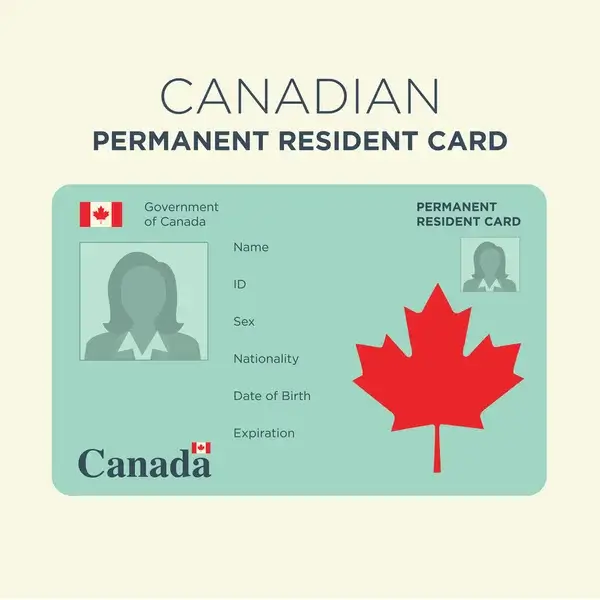Choosing the right program to study in Canada can sometimes be a hassle, as several factors come into play. From deciding whether to go for a University or College, to finding a program that fits into your budget and has scholarship opportunities, the process can be quite daunting. However, this blog will give you clarity on How to Choose a Program to Study in Canada.
In this blog, I have covered everything you will ever need to know about how to select a program that properly aligns with your academic and career goals. It all begins with understanding your academic and career goals. Evaluating your passion and long-term goals will help you decide if a study program will contribute to your future career trajectory, and help you reduce your options. This blog will provide you with more insight on this, as well as subsequent steps to make the best decision.
Whether you’re choosing a program for undergraduate or postgraduate study, knowing how to select the right program that aligns with your academic and career goals as well as your passion is paramount.
So, without any further ado, let’s get right into it.
How to Choose a Program to Study in Canada
1. University or College? Which should you go for?
This will mostly depend on your preferences, credentials, finances, and career goals. Are you more suited to a research-based program or would you prefer to choose a study program with more hands-on experience? Universities offer broad study programs in which the International student will graduate with a Bachelor’s or Master’s. Conversely, colleges provide practical training in the form of internships and co-op opportunities for specific professions with diplomas and certificates, within two to three years. University programs are usually longer and more expensive than College programs.
However, do not fall prey to the misconception that University Programs are somehow more valuable than college programs. Both Universities and Colleges offer amazing opportunities for professional and career growth.
2. Understanding your academic & career goals
It’s very important that you keenly consider your academic aspirations before you choose a study program to study in Canada. Critically assess the field of study that aligns with your interests and long-term career objectives. Research the programs available considering factors such as the way the curriculum is structured and specializations in the program.
Be on the lookout for programs that provide a hands-on experience like co–op programs or programs that are more project and research-based based depending on your preference. You can also consult with academic advisors as well as professionals in the industry for their recommendations.
3. Research Canadian Colleges, Universities, and Programs
Once you’ve decided on which program aligns with your career and academic goals, the next step is to figure out the right school to select, that offers your study program of interest. Here’s what you need to do. Research renowned institutions known for being outstanding in your chosen field of study. Thoroughly review the eligibility requirements, the province the school is situated in, admission and study costs, scholarship opportunities as well as other important factors.
This thorough research will guide you in choosing the right institution to study, setting the foundation for a rewarding academic journey in Canada
4. Accreditation Status of the School
In Canada, some schools are referred to as Designated Learning Institutions (DLI). These are schools in Canada that have been approved by the territorial or the provincial government, to admit International applicants. Schooling in a DLI is also one of the requirements for obtaining a Post Graduate Work Permit (PGWP). This work permit is an open work permit that allows the holder to work for any employer in Canada, at any location, and for as many hours as you wish.
You can check if an institution is a Designated Learning Institute (DLI) here
5. Tuition and associated costs
This is one of the most important factors to consider and it varies for different institutions and programs. It is necessary to compare the fees for your program of interest in different institutions, also factoring in other added expenses such as study permits, medical tests, biometrics, and living expenses.
Consider scholarship options when choosing a program. Usually, many Canadian institutions offer scholarships to International students which will offset part of the study expenses. There are also other funding alternatives like getting a study loan and working while you study which will help in augmenting finances.
For information on the cost of living expenses and accommodation for each province, click here.
6. Choose the right province when picking a study program in Canada
When trying to figure out how to choose a program to study in Canada, it’s crucial to consider the province your institution of choice would be located. Canada is a large country (second largest in the world) with 10 provinces and 3 territories. These provinces boast diverse cultural and economic features. For example, Ontario is a bustling city while British Columbia is known for its natural beauty, making it an appealing province for people that appreciate outdoor activities and nature.
Also, there is the factor of the weather to consider. For instance, in provinces like Alberta, it’s usually very cold during the winter season however, in Nova Scotia, they have relatively warmer weather compared to other provinces.
7. Evaluate Industry Opportunities in Canada
At the end of your study in Canada, the plan is to use your new qualifications to access career opportunities, with a Post Graduate Work Permit (PGWP). Canadian higher institutions often collaborate closely with industries that provide their students with practical internships, exposure, and networking opportunities. Assess the program’s connection to renowned sectors in Canada, to ensure your chosen program of study offers opportunities for real–life application.
You may also want to look up students that have gone through the same program you intend to study and look them up on platforms like LinkedIn, to identify their current roles. This is so you have some idea of your career prospects. Choosing a study program that has industry opportunities increases your chances of gaining valuable experiences and employment opportunities after the conclusion of your study program
8. Student Support Services
When deciding on your program of study, it’s also important to consider the availability of student support services. Consider the support services available such as career counseling, academic advising, health services, financial aid (scholarships, etc), amongst others. A University and program committed to student overall well-being will make your academic experience a whole lot better. Also, take note of how accessible these support systems are. They play a very important role in fostering a habitable learning environment.
9. Find out the Language used in the institution
Canada is a bilingual country hence, programs are offered in both English and French. Language barriers will result in having a hard time understanding lectures, writing essays or even sitting for exams.
You must be able to properly communicate in the language you are going to be taught, both in writing and speaking. This is one of the reasons why many schools require international applicants to take the IELTS or TOEFL exams.
10. Extracurricular activities and Sports
Canada prioritizes their students having a holistic academic experience and they offer a wide array of extracurricular options, from volunteering to sporting activities and clubs. Engaging in these activities compliments your academic experience and fosters relationship building, helping you build connections, a sense of community, and relevant skills.
One of the negative trends among many International students is the complaint about loneliness, especially when they go study solo (without a spouse, family, or friend accompanying them). Extracurricular activities are a way out of such experience alongside its other benefits
11. Program schedule and work opportunities
Canadian schools often structure their programs in different ways, mostly in a flexible manner. This is done so international students can balance their academic activities with part-time work opportunities. As a prospective International student, you must assess the program schedule. This helps you map out work hours (if you intend to work while studying).
To Sum it all up
Deciding to go study in Canada is a very crucial one and it will also be beneficial to learn from people around you. Have a conversation with your family, your friends, and International students to get their perspective on how they made the decision. Ensure that your skills and qualifications are in synch with your program of choice. Take your time to do your research to help you make the best choice.
Also, if you need further assistance or a guide from a team in navigating this crucial decision-making process, you can check out the Canada Japa System
FAQs
As I conclude this blog, I would like to also provide answers to some popular questions regarding How to choose a program to study in Canada:
Which program is in demand in Canada?
Several programs are in high demand in Canada which is an effect of Canada’s evolving economy and workforce needs. Fields in STEM such as computer science and IT, engineering, and data analysis and in demand. Courses in the health sector such as public Health, Nursing, and healthcare management are also in demand because of the aging population in Canada. Programs focused on sustainability such as environmental sciences, forestry, sustainability, and renewable energy are in tandem with Canada’s commitment to a more eco-friendly environment. Other non-STEM courses in demand include Business Management courses, digital marketing, software development and programming, and so on.
Which city in Canada has more job opportunities for International students?
Some Canadian cities like Toronto, Vancouver, and Montreal are amongst the best destinations to study and work in Canada. These cities are known for their vibrant lifestyle and diversified job opportunities. Toronto is Canada’s largest city and prides itself in its financial and technology sector and provides lots of opportunities in these industries, Vancouver is known for film and technology and provides opportunities in this line. Your ultimate choice would depend on factors including language preferences, preferred industry, and your lifestyle. As I have mentioned earlier in this blog post, you must do some research on the job market and determine your preferred destination
What happens if an International student fails a class in Canada?
If you fail a class in Canada, the implication may be quite different depending on the institution’s policies. Ideally, it will negatively affect your academic standing and progression within your program. Students will be required to take the failed course again to meet the academic requirements for progression. If not, such a student wouldn’t be graduating and would not also be eligible for PGWP. It is also advised that the student consults with the academic advisor to know the options that can be considered. Prospective students should get familiar with the institution’s policies on academic probation and the potential impact on visa status.
In this consideration of how to choose a program to study in Canada, remember that this decision is an important one that shapes your overall experience as you choose Canada for your International study. Take your time to factor in all that has been considered in this blog. Also, are you wondering what all the fuss about Canada is about? Check out 6 reasons why immigrants choose Canada here. I wish you a beautiful experience in the great white North.



